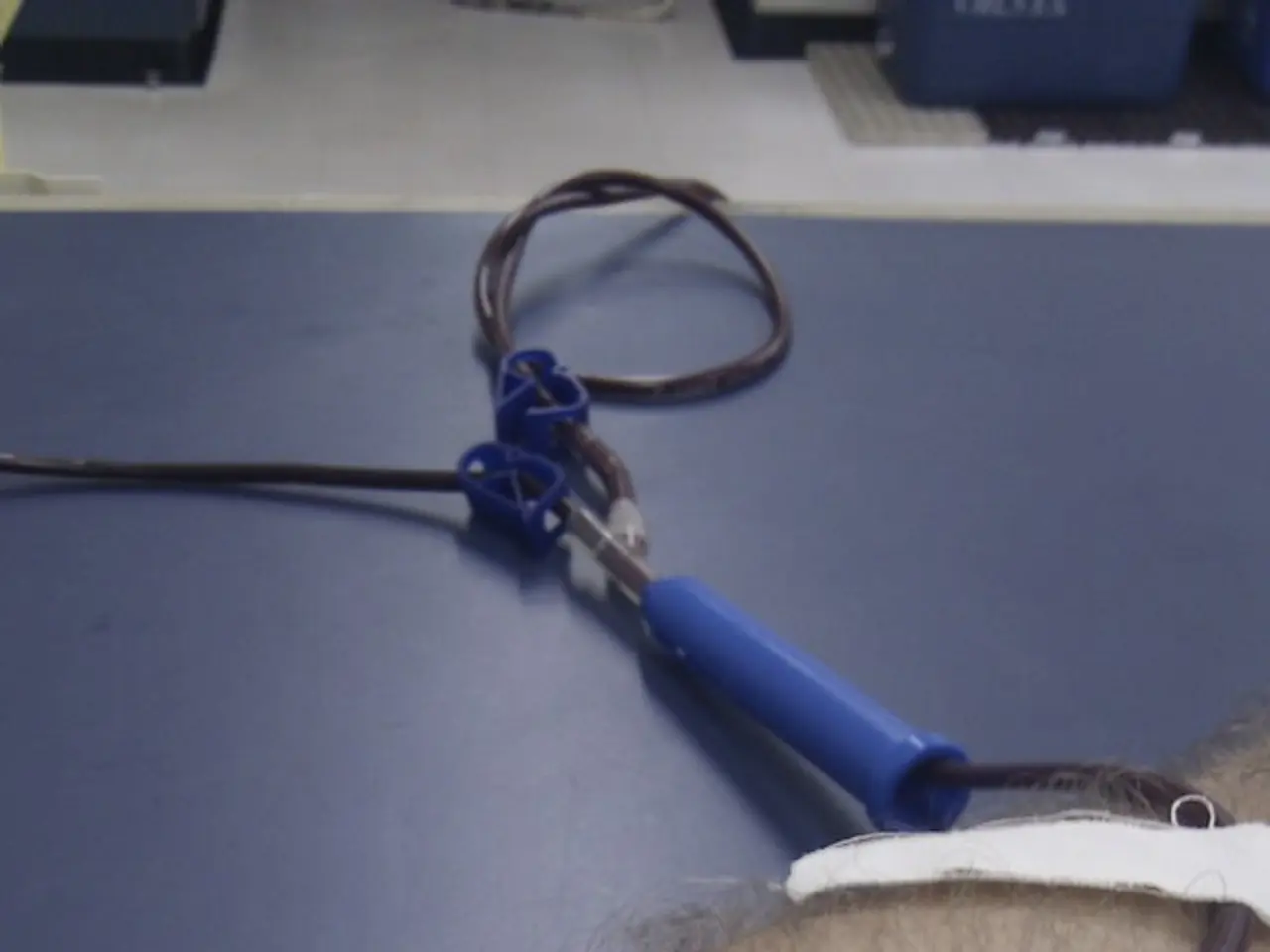Men and HPV: Signs, Consequences, Causes, and Remedies
In a significant health concern, nearly one in three men over the age of 15 carries an infection with at least one genital HPV type, with one in five having an infection with a high-risk type [1][2][4]. These high-risk HPV strains, such as HPV-16 and HPV-18, are the primary culprits behind most HPV-related cancers [1][2][4].
HPV infections can lead to DNA changes in cells, which may progress to cancer if the infection persists without clearing [4]. Risk factors that increase the chance of developing HPV-related cancer include a weakened immune system, tobacco use, and poor oral hygiene [2].
Anal cancer, penile cancer, and oropharyngeal (throat) cancer are the most common HPV-related cancers in men. Approximately 95% of anal cancer cases are caused by HPV-16 [2][3], while many cases of penile cancer are due to HPV-16 [2][3][4]. About 70% of oropharyngeal cancers, which affect the middle throat, base of the tongue, and tonsils, are HPV-related [1][2][3][4].
Symptoms of these cancers vary depending on their location. For instance, anal cancer may present with anal pain, bleeding, lumps, or sores around the anus, though these are not always present in the early stages. Oropharyngeal cancer may be asymptomatic in its early stages, but general symptoms may include weight loss, loss of appetite, and weakness [1].
Because symptoms often appear late or may be subtle, early detection can be challenging. However, vaccination against HPV strains 16 and 18 is effective in reducing the risk of these cancers [4].
It is essential to note that HPV infections usually resolve within two years, with 90% clearing without causing harm [4]. The body can often clear HPV on its own. However, when HPV does not go away, it can cause health problems like genital warts and cancer.
HPV transmits through direct and intimate contact, including sexual contact. Removing genital warts might not prevent transmission to a sexual partner. Treatment for genital warts includes prescription medication and surgical removal.
Individuals with genital warts should avoid sexual contact until treated. Using condoms and receiving the HPV vaccine can lower the risk of contracting HPV. The HPV vaccine is safe and effective, with minor side effects reported. It is recommended for individuals aged 11-26, with different dose schedules depending on age and immune system status.
Although HPV is common, HPV-related cancers and health problems are less common overall. However, understanding the causes, symptoms, and prevention methods is crucial for early detection and effective treatment.
References: [1] American Cancer Society. (2021). Oropharyngeal cancer. https://www.cancer.org/cancer/oropharyngeal-cancer.html [2] Centers for Disease Control and Prevention. (2021). HPV and cancer. https://www.cdc.gov/cancer/hpv/index.htm [3] National Cancer Institute. (2021). HPV-related cancers. https://www.cancer.gov/about-cancer/causes-prevention/risk/infectious-agents/hpv/hpv-fact-sheet [4] World Health Organization. (2021). Human papillomavirus (HPV) and cervical cancer. https://www.who.int/news-room/fact-sheets/detail/human-papillomavirus-(hpv)-and-cervical-cancer
- A significant concern in health and wellness is the high prevalence of sexual type HPV infections among men, with about one in three men carrying at least one genital HPV type over the age of 15.
- High-risk HPV types, such as HPV-16 and HPV-18, are primary causes of HPV-related cancers, like anal, penile, and oropharyngeal cancers.
- The body can often clear HPV infections on its own, but when it doesn't, it can lead to health problems like genital warts and certain types of cancer.
- Early detection of these HPV-related cancers can be challenging due to subtle or late-appearing symptoms, making vaccination against HPV strains 16 and 18 an effective measure for reducing the risk.
- HPV transmits through direct and intimate contact, including sexual contact, and treating genital warts might not prevent transmission to a sexual partner.
- Mental health is also a factor to consider, as the psychological impact of dealing with HPV infections, related health conditions, or skin care issues like genital warts, can contribute to conditions like depression and anxiety.
- Skin care and wellness products like CBD oil have shown potential benefits in managing symptoms of certain skin conditions, such as psoriasis, and may help with pain management in certain cases.
- Understanding the causes, symptoms, and prevention methods of HPV infections and related health problems is crucial for early detection, effective treatment, and maintaining overall health and sexual and mental health.




